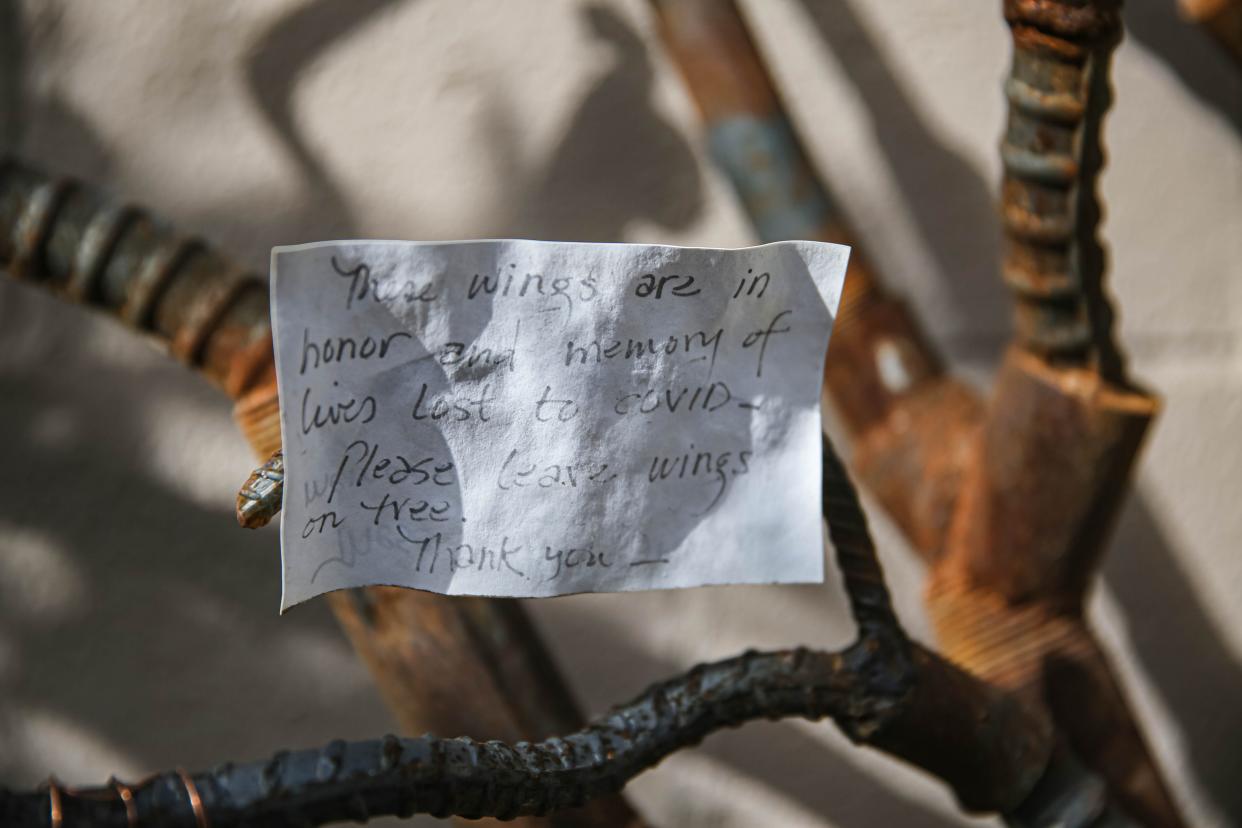NMSU study: COVID-19 in social groups linked to poor mental health

LAS CRUCES - A new study from a New Mexico State University researcher found that individuals with a friend or loved one infected by COVID-19 are more likely to experience depression and anxiety.
Jagdish Khubchandani, a public health sciences professor at NMSU, examined the psychological health burdens of COVID-19 infections, hospitalizations and deaths within friend and family groups for a new study published in a special issue of Brain Sciences journal.
Khubchandani and a team of researchers conducted a national assessment of nearly 3,000 American adults. They found that individuals who had a friend or family member affected by COVID-19 via infection, hospitalization or death were almost two times more likely to have anxiety symptoms. Likewise, those who knew anyone similarly impacted by COVID-19 were more likely to have depression symptoms.

“Overall, participants who had a friend or family member infected, hospitalized or die because of COVID-19 had almost two or more times the risk of having symptoms of both anxiety and depression,” Khubchandani said. “Our team found that the more severe the infection in social networks, the higher the probability of having symptoms of depression and anxiety.”
Khubchandani said the study’s research team sought to understand the indirect toll of COVID-19 on Americans.
“Previous studies may have missed the extent of human suffering as many people died at home, and we did not know the psychological impact of having a family member infected by or hospitalized due to COVID-19 in the U.S.,” he said.
After conducting a multiple regression analysis to predict mental health status, the researchers found that COVID-19 in social groups was significantly associated with poor mental health.
“A unique finding in our study was that the higher the number of people affected by COVID-19 in social circles, the higher the odds of depression and anxiety symptoms,” Khubchandani said.
In the study, the research team outlines potential reasons for poor mental health when a family member or friend is affected by COVID-19. The reasons included:
Overwhelming stress and fear and uncertainty of the future.
Inability to see loved ones before death or seeing them struggling in intensive care.
Unexpected life changes or alterations in family responsibilities and caregiving.
Losing financial support or having monetary difficulties.
Having problems with navigating health care systems.
Lack of emotional and social support for families.
“Our study indicates the profound mental health impact of COVID-19 infections among the American population,” Khubchandani said. “Recent national estimates suggest that more than 200,000 American children have lost a parent or caregiver due to COVID-19. And the million-plus Americans who died were not just numbers, but people who succumbed to infection and leave a void in the lives of many, often resulting in prolong grief and psychological problems.”
Khubchandani said public health professionals and communities have a responsibility to help those struggling with poor mental health caused by COVID-19. He urges policymakers to increase access and funding for mental health care.
“The cost of poor mental health among individuals could run into trillions of dollars for the society,” he said. “It is not just the mental health care cost, we should also consider the loss of productivity, disability, premature mortality and individuals not living up to their fullest potential.”
The study lists many initiatives and areas of intervention. To read the full study, visit https://nmsu.news/COVID-social-impact.
Related:
Healing Wings project helps residents process COVID-19 grief through art
About six Doña Ana County residents died each week from COVID-19 in 2021. Here's one family's story.
New Mexico COVID-19 cases decrease as state rolls out new booster shots
Carlos Andres López writes for New Mexico State University Marketing and Communications. He can be reached at 575-646-1955 or carlopez@nmsu.edu.
This article originally appeared on Las Cruces Sun-News: NMSU study: COVID-19 in social groups linked to poor mental health

